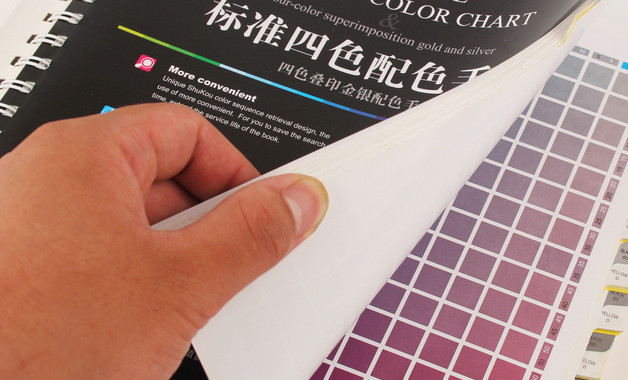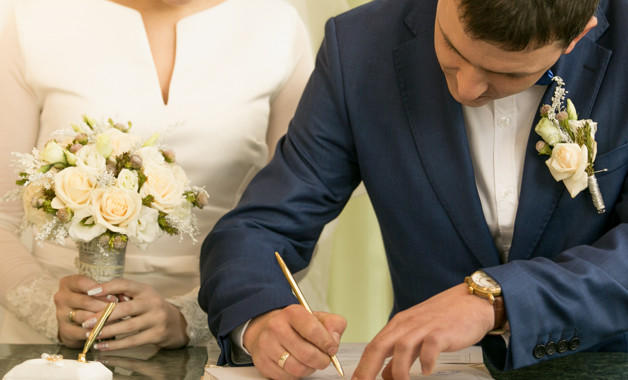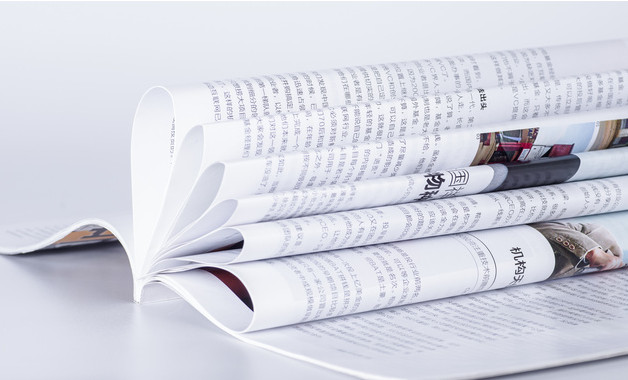- 目录

第1篇 学校中学生英语演讲稿
i wanna welcome everybody here in this cheer team。
thank you for coming here this morning to stand on my side cheering me on。
it’s my dream to have the opportunity to challenge all the foreign athletes to the championship at this great occasion: __年 olympic games。
now, the dream came true。
as an athlete of china, i’m here to win the gold medal of orienteering for our motherland。
i’m so proud of being one of the best players in the world。
but could you believe i had been a lazy girl when i was in junior high。
i’m not kidding! at that time, running was my last favorite。
i really don’t know how to describe the first time i was on the track。
it was horrible。
when i started to run, i was simply out of breath。
and while i touched the finishing line, i really didn’t know if i was still alive。
it’s so funny, huh? but it’s true, i did。
well, something happened and changed the situation。
we won the right of holding the olympic games in 2009.
after that, sports became a kind of game in campus。
and there are many sports clubs in school。
one day someone asked me:“are you gonna try one of those?”first i felt so wired。
“try to get into sports clubs? are you kidding?” i said。
and she goes: “why not?? it’s not hard at all, and so fascinating!” so i did tried one and i was so lucky to become one of those who did orienteering。
that is a fantastic sport! you need to run and find where to go just by using a map and a compass。
it’s wasn’t popular in china at first。
but when we heard it might become a new event in 2009, we did practiced hard, and aimed to win the first champion of orienteering in the world。
when we practiced, there were a lot of troubles。
you know, sometimes you need to go with your feet, but sometimes you need to go with your heart。
in some situations, we faced the difficulties and problems。
and we need to solve that through teamwork and strong willpower。
so we can run faster, go higher and be stronger。
that is what we say—olympic spirit。
now the dream came true。
i’m standing here with all my body and my heart put in sports。
so do the people from all over the world to here at the olympic games。
it’s the olympic games that make us together。
we are here for a big day of sport; we are here for a dream of sports。
第2篇 哈佛大学校长德鲁·福斯特在哈佛大学2022年毕业典礼英语演讲稿
thank you all and good afternoon alumni, graduates, families, friends, honored guests. for seven years now, it has been my assignment and my privilege to deliver an annual report to our alumni, and to serve as the warm-up act for our distinguished speaker.
whether this is your first opportunity to be a part of these e_ercises or your fiftieth, it is worthtaking a minute to soak in this place—its sheltering trees, its familiar buildings, its enduringvoices. in 1936, this part of harvard’s yard was named tercentenary theatre, in recognition ofharvard’s three hundredth birthday. it is a place where giants have stood, and history has beenmade.
we were reminded this morning of george washington’s adventures here. and from this stagein 1943, winston churchill addressed an overflow crowd that included 6,000 uniformedharvard students heading off to war. he said he hoped the young recruits would come toregard the british soldiers and sailors they would soon fight alongside as their “brothers inarms,” and he assured the audience that “we shall never tire, nor weaken, but march withyou … to establish the reign of justice and of law.”
four years later, from this same place, george marshall introduced a plan that aidedreconstruction across war-stricken europe, and ended his speech by asking: “what is needed?what can best be done? what must be done?”
here, in 1998, nelson mandela addressed an audience of 25,000 and spoke of our sharedfuture. “the greatest single challenge facing our globalized world,” he said, “is to combat anderadicate its disparities.” ellen johnson sirleaf, the first female head of state in africa, stoodhere 13 years later and encouraged graduates to resist cynicism and to be fearless.
here, on the terrible afternoon of september 11, 2022, we gathered under a cloudless sky toshare our sadness, our horror, and our disbelief.
and here, just three years ago, we marked harvard’s 375th anniversary dancing in the mud of atorrential downpour. here, president franklin delano roosevelt had celebrated harvard’s threecenturies of accomplishment in a comparably soaking rain.
here, j.k. rowling encouraged graduates to “think themselves into other people’s places.” andconan o’brien told them that “every failure was freeing.”
here, honorary degrees have been presented to carl jung and jean piaget, ellsworth kelly andgeorgia o’keefe, helen keller and martha graham, ravi shankar and leonard bernstein, joandidion and philip roth, eric kandel and elizabeth blackburn, bill gates and tim berners-lee.
i remember feeling awed by that history when i spoke here at my installation as harvard’s28th president, and when i reflected on what has always seemed to me the essence of auniversity: that among society’s institutions, it is uniquely accountable to the past and to thefuture.
our accountability to the past is all around us: behind me stands memorial church, amonument to harvardians who gave their lives at the somme and ypres and verdun duringworld war one. dedicated on armistice day in 1932, it represents harvard’s long tradition ofcommitment to service.
in front of me is widener library, a gift from a bereaved mother, named in honor of her sonharry, who perished aboard the titanic. a library built to advance the learning and discoveryenabled by one of the most diverse and broad collections in the world. widener’s twelvemajestic columns safeguard te_ts and manuscripts—some centuries old—that are deployedevery day by scholars to help us interpret—and reinterpret—the past.
but this afternoon i would like to spend a few minutes considering our accountability to thefuture, because these obligations must be “our compass to steer by,” our common purpose andour shared commitment.
what does harvard—what do universities—owe the future?
first, we owe the world answers.
discovery is at the heart of what universities do. universities engage faculty and studentsacross a range of disciplines in seeking solutions to problems that may have seemedunsolvable, endeavoring to answer questions that threaten to elude us. the scientific researchundertaken today at harvard, and tomorrow by the students we educate, has a capacity toimprove human lives in ways virtually unimaginable even a generation ago. in this past yearalone, harvard researchers have solved riddles related to the treatment of alzheimer’s, thecost-effective production of malaria vaccine, and the origins of the universe. harvardresearchers have proposed answers to challenges as varied as nuclear proliferation, americancompetitiveness, and governance of the internet.
we must continue to support our answer-seekers, who work at the crossroads of thetheoretical and the applied, at the ne_us of research, public policy, and entrepreneurship.together, they will shape our future and enhance our understanding of the world.
second, we owe the world questions.
just as questions yield answers, answers yield questions. human beings may long forcertainty, but, as oliver wendell holmes put it, “certainty generally is illusion, and repose isnot the destiny of man.” universities produce knowledge. they must also produce doubt. thepursuit of truth is restless. we search for answers not by following prescribed paths, but byfinding the right questions—by answering one question with another question, by nurturing astate of mind that is fle_ible and alert, dissatisfied and imaginative. it is what universitiesare designed to do. in an essay in harvard magazine, one of today’s graduates, cheroneduggan, wrote about seeking what she called “an education of questions.” i hope we haveindeed given her that.
questions are the foundation for progress—for ensuring that the world transcends where weare now, what we know now.
and questions are also the foundation for a third obligation that we as universities owe thefuture: we owe the future meaning.
universities must nurture the ability to interpret, to make critical judgments, to dare to askthe biggest questions, the ones that reach well beyond the immediate and the instrumental.we must stimulate the appetite for curiosity.
we find many of these questions in the humanities: what is good? what is just? how do weknow what is true? but we find them in the sciences as well. can there be any question moreprofound, more fundamental than to ask about the origins of the universe? how did we gethere?
questions like these can be unsettling, and they can make universities unsettling places. butthat too is an essential part of what we owe the future—the promise to combatcomplacency, to challenge the present in order to prepare for what is to come. to shape thepresent in service of an uncertain and yet impatient future.
we owe the future answers. we owe the future questions. we owe the future meaning. theharvard campaign, launched last september, will help us fulfill these obligations, and pay ourdebt to the future, just as the gifts of previous generations anchor us here today.
as today’s ceremonies so powerfully remind us, we also owe the future the men and women whoare prepared to ask questions and seek answers and search for meaning for decades to come.today we send some 6,500 graduates into the world, to be teachers and lawyers, scientists andphysicians, poets and planners and public servants, and—as our speaker this morning remindedus—to be in their own ways revolutionaries. ready to take on everything from water scarcity tovirtual currency to community policing. we must continue to invest in financial aid to attractand support the talented students who can build our future, and also we must invest insupporting the teaching and learning that ensures the fullest development of their capacities ina rapidly changing world.
if we fulfill our obligation, today’s graduates will have found the “education of questions”cherone described, a place where, as she put it, “ceilings are only made of sky.” but look aroundyou: we are there. this space is a “theatre” without walls, without a roof, and without limits. itis a place where e_traordinary individuals have preceded us, a place that must encourage ourgraduates—of today and all the years past—to emulate those women and men, to look skywardand to soar.
thank you very much.
第3篇 凯特王妃2022年在伯克郡母校圣安德鲁学校英语演讲稿
thank you, headmaster.
it is such a treat to be back here at st andrew’s. i absolutely loved my time here; they weresome of my happiest years, which makes it so incredibly special to be here today.
in fact, i enjoyed it so much that when i had to leave, i told my mother that i was going tocome back to be a teacher. while that didn’t quite happen, i was thrilled to have been askedback today on st. andrew’s day.
it was while i was here at school that i realised my love of sport. sport has been a huge part ofmy life, and i feel incredibly grateful for the opportunities i had to get outside and play in suchwonderful open spaces – though sadly there was nothing quite as glamorous as this in my time!
i hope that you all enjoy playing sport here as much as i used to, and make the most of theseincredible facilities. it gives me great pleasure to declare this astro officially open.
第4篇 哈佛大学校长福斯特在2022年毕业典礼英语演讲稿
it is always a pleasure to greeta sea of alumni on commencement afternoon—even thoughmy role is that of thewarm-up act for the feature to come. today i am especially aware of thetreatwe have in store as i look out on not a sea, but a veritable ocean ofanticipation.
but it is my customary assignmentand privilege to offer each spring a report to thealumni on the year that isending. and this was a year that for a number of reasons demandsspecial note.
“the world is too much with us”—the lines of wordsworth’s well-known poem echoed in mymind as i thoughtabout my remarks today, for the world has intruded on us this year in wayswenever would have imagined. the university had not officially closed for a daysince 1978. thisyear it closed three times. twice it was for cases of e_tremeweather—first for superstorm sandyand then for nemo, the record-breakingfebruary blizzard. the third was of course the day ofboston’s lockdown in theaftermath of the tragic marathon bombings. this was a year thatchallengedfundamental assumptions about life’s security, stability and predictability.
yet as i reflected on theseintrusions from a world so very much with us, i was struck by howwe at harvardare so actively engaged in shaping that world and indeed in addressing somanyof the most important and trying questions that these recent events have posed.
just two weeks ago, climatescientists and disaster relief workers gathered here for a two-day conferenceco-sponsored by the harvard humanitarian initiative and the harvarduniversitycenter for the environment. they came to e_plore the very issues presentedbysandy and nemo and to consider how academic researchers and workers on theground cancollaborate more effectively.
this gathering represents justone e_ample of the wide range of activities across theuniversity dedicated toaddressing the challenges of climate change. how can we advance thesciencethat helps us understand climate change—and perhaps avert it? how can wedevisesolutions—from new technologies to principles of urban design—that mightmitigate it?how can we envision the public policies to manage and respond toit? harvard is deeplyengaged with the broad issues of energy andenvironment—offering more than 250 courses inthis area, gathering 225 facultythrough our environment center and its programs, enrolling100 doctoralstudents from 7 schools and many different disciplines in a graduateconsortiumdesigned to broaden their understanding of environmental issues. our facultyarestudying atmospheric composition and working to develop renewable energysources; theyare seeking to manage rising oceans and to reimagine cities foran era of increasinglythreatening weather; they are helping to fashionenvironmental regulations and internationalclimate agreements.
so the weather isn’t somethingthat simply happens at harvard, even though it may haveseemed that way when wehad to close twice this year. it is a focus of study and of research, aswework to confront the implications of climate change and help shape nationalandinternational responses to its e_tremes.
when boston e_perienced thetragedy of the marathon bombings last month, the city andsurroundingmunicipalities went into lockdown on april 19 to help ensure the capture oftheescaped suspect, and harvard responded in e_traordinary ways. within ourowncommunity, students, faculty and staff went well beyond their ordinaryresponsibilities tosupport one another and keep the university operatingsmoothly and safely underunprecedented circumstances. but we also witnessedour colleagues’ magnificent efforts tomeet the needs of boston and our other neighborsin the crisis. the harvard police worked withother law enforcement agencies,and several of our officers played a critical role in saving thelife of thetransit officer wounded in watertown. doctors, nurses and other staff, manyfrom ouraffiliated hospitals, performed a near-miracle in ensuring that everyinjured person who arrivedat a hospital survived. years of disaster planningand emergency readiness enabled theseinstitutions to act in a stunninglycoordinated and effective manner. i am deeply proud of thecontributions madeby members of the harvard community in the immediate aftermath of thebombings.
but our broader and ongoingresponsibility as a university is to ask and address the largerquestions anysuch tragedy poses: to prepare for the ne_t crisis and the one after that, evenaswe work to prevent them; to help us all understand the origins and themeaning of suchterrible events in human lives and societies. we do this workin the teaching and research towhich we devote ourselves every day.
investigators at the harvardhospitals are e_ploring improved techniques for managinginjury. researchers atbrigham and women’s, for instance, are pursuing the prospect of legtransplantsfor amputees. a faculty member in our school of engineering and appliedsciences isstudying traumatic brain injury. faculty in the business andkennedy schools are teaching andlearning about leadership in times ofcrisis—analyzing historic and contemporary e_amples,from shackleton inantarctica to katrina in new orleans—in order to search for lessons forthefuture. the very day of the lockdown, the mahindra humanities center and theharvard lawschool program on negotiation had scheduled a conference on“confronting evil,” e_aminingthe cognitive, behavioral and social implicationsof both what it called “everyday evils” and“e_traordinary crimes.” a few dayslater, the harvard divinity school assembled a panel ofe_perts to discuss“religion and terror,” e_ploring sources of violence in bosnia, in themiddleeast, and during the troubles in ireland, which served as a formativee_perience for ourdivinity school dean in his youth. at the institute ofpolitics at the kennedy school, lawenforcement, emergency management and othere_perts gathered to consider lessons learnedfrom the bombings. as we struggledto understand the events that shook our city and ourregion, members of ourcommunity were already engaged in interpreting the world that hadproduced suchtragedy and in seeking ways to prevent its recurrence.
three unusual days, making for anunusual year. yet these three unusual daysunderscore and illuminate the usualwork of this university: calling on knowledge andresearch to addressfundamental challenges and dilemmas with resources drawn from the widestscopeof human inquiry—from the insights of the natural and social sciences to thereflectionson meaning and values at the heart of the humanities. universitiesurge us towards a betterfuture and equip us as individuals and societies toget there.
yet other events this past yearremind us we cannot take what universities do for granted.this year hasbrought home not just the threats of e_treme weather and of terror andviolence.it has also been a year that has challenged fundamental assumptions undergirdingamericanhigher education and the foundations of our nation’s researchenterprise. i have just offerede_amples of how our research and teaching cancontribute to addressing urgent problems facingour world. we live in an era inwhich knowledge is more vital than ever to nations, economiesand societies.knowledge is, i often say, the most important currency of the twenty-firstcentury.and universities are the places that, more than any other, generateand disseminate thatknowledge.
in the united states, thepartnership between universities and the federal governmentestablished afterworld war ii has been a powerful engine of scientific discovery andprosperity.yet that partnership, now more than half a century old, is threatened by theerosionof federal support for research—a situation made acute by the sequester. anestimatedalmost $10 billion will be cut from the federal government’s researchbudget in 2022. thenational institutes of health calculates that cuts to itsresources could mean the loss of morethan 20,000 jobs in the life sciencessector. here at harvard, we receive appro_imately 16% ofour operating budgetfrom federal research funding. we anticipate we may see declines of asmuch as$40 million annually in federal support for research.
what does all this mean? facultyare finding that even grant applications with perfect scoresin peerevaluations are not getting funded. they see e_isting awards being reduced.aspiringyounger scientists are fearful they will not receive career-launchinggrants on which their futuredepends. some are entertaining overtures fromcountries outside the united states wherescience investment is robust ande_panding. students contemplating graduate training arewondering if theyshould pursue other options. great ideas that could lead to improvedhumanlives and opportunities, and improved understanding, are left without supportor themeans for further development.
the world and the nation need thekind of research that harvard and other americanresearch universitiesundertake. we need the knowledge and understanding thatresearchgenerates—knowledge about climate change, or crisis management, or melanoma,oreffective mental health interventions in schools, or hormones that might treatdiabetes, orany of a host of other worthy projects our faculty are currentlypursuing. we need the supportand encouragement for the students who willcreate our scientific future. we need theeconomic vitality—the jobs andcompanies—that these ideas and discoveries produce. we needthe nation toresist imposing a self-inflicted wound on its intellectual and human capital.weneed a nation that believes in, and invests in, its universities because werepresent aninvestment in the ideas and the people that will build and will bethe future.
so as i report to you on the yearwe now bring to a close, i want to underscore the threatto universities and toour national infrastructure of knowledge and discovery that thesequesterrepresents. even in a year when sometimes the world felt too much with us, wehavenever lost sight of how much what we do here has to do with the world. andfor the world. tosequester the search for knowledge, to sequester discovery,to sequester the unrelentingdrive of our students and faculty to envision andpursue this endless frontier—such a strategydoes more than threatenuniversities. it puts at risk the capacity and promise of universitiestofulfill our commitment to the public good, our commitment to our childrenandgrandchildren and to the future we will leave them. the challenges facing theworld are tooconsequential, the need for knowledge, imagination andunderstanding is too great, theopportunity for improving the human conditiontoo precious for us to do anything less thanrise to the occasion. with thedevotion of our alumni, with the inspiration of our new graduatesand—ihope—with the support of our nation’s leaders, we must and we will.
第5篇 学校英语比赛演讲稿
globalization is one of the most popular words in this era。 people live in a global village, enterprises come up with global strategies statesmen promote global cooperation, even anti—terrorism has become a global task。
today i want to share my opinion of which is that globalization with you ,
when i was a little girl i looked forward to globalization because it’s said that globalization can make the world smaller and make it possible for me to talk, travel,e_change ideas and e_periences。 i can eat any delicious food from any corner of the world, i can watch movie and tv programs from any producer, i can also e_tend our horizon and our mind quickly and conveniently。 globalization sounds like a super hero that can bring everything to me。
when i growing up ,i have noticed that globalization is both a a challenge and an opportunity。 in one hand , we want to attract more and more people become interested and e_cited about china ,in the other hand, there is much change happens in our living environment and we still want to keep our beautiful scenery while enjoying cooperation with foreign companies and foreign countries。
what should we do when we face to the phenomenon ?
first of all i think we should have our national characteristics。 we should show that even globalization has its own home and globalization identity。 second, we should make good use of globalization resources from any countries as possible as we can。 from that we can benefit from it in the long run。 the last one, as i just mentioned, people living in a global village, so we are the part of the globalization and sharing the responsibility to make our world more wonderful。
in conclusion, i think globalization made our daily life more and more e_cellent, we should catch the opportunity to develop our hometown, our society, our country in every side。
第6篇 学校英语演讲稿格式范文
导语演讲又叫讲演或演说,是指在公众场所,以有声语言为主要手段,以体态语言为辅助手段,针对某个具体问题,鲜明,完整地发表自己的见解和主张。本篇文章是酷猫写作范文网为您整理的学校英语演讲稿格式范文,供大家阅读与鉴赏。
学校英语演讲稿格式
从大的方面看,英语演讲词实际上是属于一种特殊的说明文或议论文,其基本组成部分是:
1)开始时对听众的称呼语最常用的是ladies and gentlemen,也可根据不同情况,选用fellow students,distinguished guests,mrchairman,honorable judges(评委)等等。
2)提出论题由于演讲的时间限制,必须开门见山,提出论题。提出论题的方法有各种各样,但最生动,最能引起注意的是用举例法。比如:你要呼吁大家关心贫穷地区的孩子,范文网你可以用亲眼看到的或者收集到的那些贫穷孩子多么需要帮助的实例开始。另外,用具体的统计数据也是一个有效的引出论题的方法,比如:你要谈遵守交通规则的话题,你可以从举一系列有关车辆、车祸等的数据开始。
3)论证对提出的论题,不可主观地妄下结论,而要进行客观的论证。这是演讲中最需要下功夫的部分。关键是要把道理讲清楚。常见的论证方法有举例法、因果法、对比法等等,可参见英语议论文的有关章节。
4)结论结论要简明扼要,以给听众留下深刻印象。
5)结尾结尾要简洁,不要拉拉扯扯,说个没完。特别是不要受汉语影响,说些类似“准备不足,请谅解”,“请批评指正”这样的废话。最普通的结尾就是:thank you very much for your attention。
学校英语演讲稿范文篇good morning,dear teacher and my friends.
it’s a very intresting topic today.
i think my dad was a hero for me when i was a young child.we'd go fishing,walks,and other fun things for a kid.
every child has a good and great father,and so do i.my dad played a very important role in my daily life`````e_actly speaking,in my past 16 years.
my father always stands in the center of my life,from past till now and possibly in the future.
my family was rather poor when i was in my childhood.we didn't have our own house and had to live in a shabby,small room rented from my father's factory.the room was so small that there was little space for people to walk.i didn't have my own bed and had to sleep with my parents.this is terrible both for my parents and me.
but father made this all different!he works very hard on his own business,now we have our own 2 housese,surly,i have my own room.and he take our family so much happiness,richer and richer.
when i was little,i did everything with my dad.you could always find me sitting on his knee or walking and doing everything with him.every night he would read me a bed time story and make the voices of each character.
i learnt a lot from my daddy.i learnt to never take things to seriously and to always smile.
like many other fathers,my dad and i also has generation gap.he is not good at or even can’t work the computer.so when i sitting at the computer desk,he will say something like ‘you should pay more attention to your study’,‘don’t waste time on the computer games’,‘it will be bad for your eyes’ and so on.how can i- a computer fan – reduce time on computer?so i continue studying and playing on it
years pasted,my father is over 45 now.it is time for me to look after him and i am sure i will do and we will live an even better life.and i will say,i really love you dad,cause you are the hero in my mind.
thank you so much!
学校英语演讲稿范文
第7篇 爱学校英语演讲稿
爱学校英语演讲稿
good morning, my dear teachers and friends! my name is li bingke, from class four o five. today, i am very happy to be here. my topic is “our school”.
my dear friends, welcome to our school! my school is very beautiful! it has a big playground. we can play and do some sports there. near the playground, there is a garden. many trees and flowers are there. so the air is very clean and we can hear birds singing in the trees. it is so wonderful. our teaching buildings are around the garden and look like our teachers’ arms to welcome us. we can draw pictures in the art room on the first floor and read story-books in the library on the second floor. my classroom is on the third floor. it is clean and bright. we like to study in it. the computer room is on the fifth floor. we can sing and dance in the music room on the si_th floor. what a lot of fun! we can have lunch in the canteen near defang teaching building.
in our school, our teachers work hard and help us with our lessons. we study hard and listen to teachers carefully. after class, our teachers play with us and we feel very happy.
our school is so nice and our teachers are so kind. we all love them. dear friends, do you like them?
that's all. thanks!
爱学校英语演讲稿,已全部结束,感谢你的阅读。









